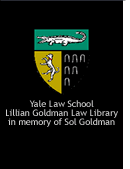
 |
 |
- produced by Jael Humphrey-Skomer and Shirin Bakhshay This media presentation uses the concept of reconciliation to evaluate the South African and Guatemalan truth commissions. The presentation compares the truth commissions along several dimensions and then asks normative questions about whether each model was successful in fulfilling its mandate, using the concept of reconciliation as a proxy for the relative success of the truth commissions. There are both different levels at which to think about reconciliation – the individual, the community, the state – and different philosophical narratives articulating the concept – legal, redemptive, emotional. This presentation means to bring these conceptions into conflict with each other, challenging what it means to be reconciled and how important a personal sense of reconciliation is to the larger community and nation as a whole. For the purpose of evaluating the South African and Guatemalan truth commissions, we consider a society to be reconciled when it ceases to be divided and can engage in the process of nation-building. This presentation then contrasts several aspects of the Guatemalan and South African truth commissions – the nature of the conflict leading up to the settlements, the political realities that gave rise to the commissions, the mandate of the truth commissions, the degree of acknowledgment of victims, and the type of amnesty pursued. The South African Truth and Reconciliation Commission (TRC) and the Guatemalan Commission for Historical Clarification (CEH) emerged from different legacies of violence. By the time the TRC was established in South Africa, the apartheid regime had been dismantled. The TRC’s mandate called for an inquisition into human rights violations which occurred during apartheid, while the CEH investigated the violence perpetuated in Guatemala’s thirty-six year armed conflict. This conflict was characterized by government violations against the civilian population, particularly, the indigenous Maya population. In contrast to South Africa, many of the worst perpetrators of human rights violations in Guatemala maintain power to this day. The South African TRC focused mainly on the testimony of victims of human rights violations during apartheid and is acclaimed for the openness of its proceedings. Hearings were conducted publicly and perpetrators could apply for amnesty for politically motivated crimes. The Guatemalan CEH was not allowed to name perpetrators and testimony was collected privately. In its final report the CEH assigned institutional responsibility attributing the vast majority of human rights abuses during the conflict to the government. In South Africa, perpetrators could solicit the Amnesty Committee for amnesty. In Guatemala, the government passed a blanket amnesty law for war crimes. The lack of legal justice in Guatemala has led massacre survivors and other victims of the conflict to demand justice. The presentation thus asks whether truth is the best road to reconciliation or whether legal justice is necessary for victims to feel satisfied with the truth commission process. Reconciliation is perhaps as hard to measure as it is to define. Despite criticism, the South African and Guatemalan truth commissions both continue to play an important role in these countries as they rebuild their societies. While it is challenging to determine whether either truth commission was really “successful” it seems clear that in South Africa there is some sense that reconciliation has been achieved and that, until some legal justice is achieved, Guatemala is far from reconciliation. |
|
Biographies Shirin Bakhshay Shirin is a member of the Yale Law School class of 2007. She graduated from the University of California, Berkeley in 2004 with a degree in Political Science. At Yale, she is an articles editor for the Yale Journal of Law and Feminism. She also works for the Lowenstein International Human Rights Project. Shirin will spend the summer of 2005 working at the Women’s Legal Centre in Cape Town.
Jael Humphrey-Skomer Jael will graduate from Yale University with a J.D. and a masters in International Relations in 2008. She received her B.A. from Columbia University with a major in Political Science and a concentration in Latin American Studies in 2001. Before law school, she worked for a year in Guatemala first as a human rights observer and then as an intern with the Center for Human Rights Legal Action. She serves as submissions editor for the Yale Human Rights and Development Law Journal. |
|
| Return to Multimedia Page | List of Websites | Bibliography |
|